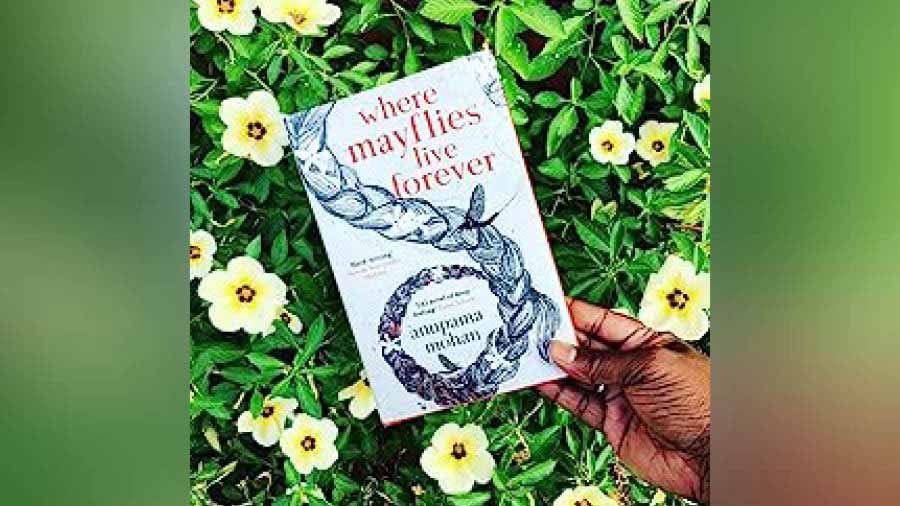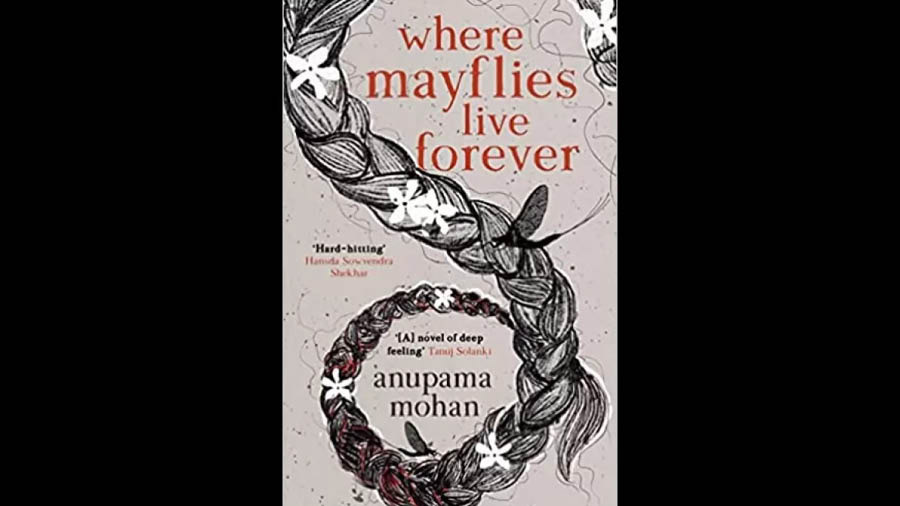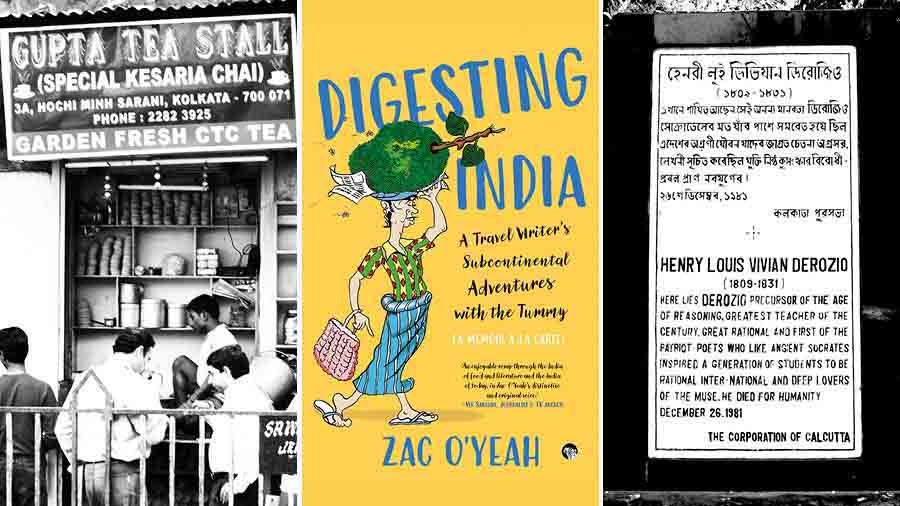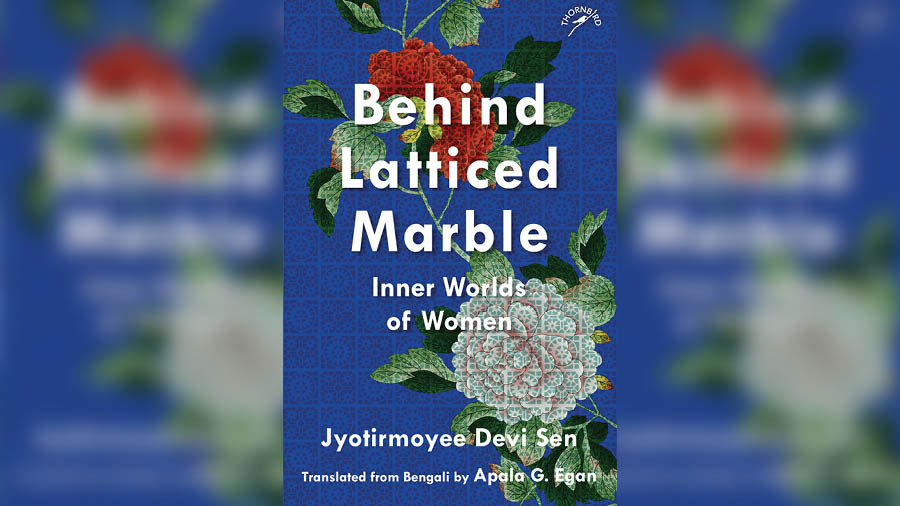On an ordinary day in a small town, a young woman was returning home from work – walking back from the local school where she taught geography. She paused a moment under a tree to gather mushrooms, lying aplenty at her feet. As she turned around to resume walking, her life was laid waste... in the midst of a daily ritual, just like that!
She was ravished by a man whose pride she had recently hurt, when she involuntarily laughed at his wrong pronunciation of the word ‘globe’ in an award function in her school, of which he was a patron, and who had a hand in securing her husband a position there as a mathematics teacher. But her greater sin was that:
“She walked like she didn’t really care and there was always a kind of... something about her... [that] made it seem like she was superior to all. [...] She behaved as if she didn’t at all get what Anna wanted from her or if she did get it, like it didn’t matter to her. [...] When they met at school or outside the temple, she would barely acknowledge his existence...”
Her punishment for not paying obeisance to his power was meted out on a lazy evening, when the intoxication of the local liquor lent an edge to an accidental opportunity to this man and his cronies, just outside an abandoned mill.
Case files and murder mystery
Published exactly a decade after the case of Nirbhaya sent shock waves across the nation and forced India’s judiciary to promulgate new laws related to rape, it is impossible not to compare Sriveni, Anupama Mohan’s protagonist in Where Mayflies Live Forever (henceforth, Mayflies), with Nirbhaya. In fact, in many ways, Veni epitomises the quality of ‘nirbhaya’ – being fearless – even if she is named after a river that can mean both flood and braided hair.
It is also impossible, if one is a Netflix addict, not to think of Delhi Crime – an original series on the Nirbhaya story, directed by Richie Mehta, based on police case files. ACP Asha Peter IPS of the novel is reminiscent of DPS Vartika Chaturvedi IPS (played by Shefali Shah), in her efficiency and dogged determination to get to the heart of the matter and deliver justice. But the comparison ends there; because while Chaturvedi was hell bent on nabbing the perpetrators of a most heinous gang rape, Peter is dealing with a crime where the victim had allegedly turned perpetrator, decapitating the head of Senganoor Adhiban, her chief violator, after his men gravely injured her younger brother (Chinna) four years after her own brutal violation. It is this murder that is investigated in the novel.

Anupama Mohan @Amohan666/Twitter
Mayflies is, however, a murder mystery that is never resolved, but seen through the eyes of eight people, seven of whom are closely related to or acquainted with the prime suspect – her mother, grandmother, soul sister, father, elder brother, husband, and her ravisher’s man-Friday, Murugan. The eighth perspective is that of the investigating officer. Each of these characters is assigned a chapter, in which they speak in the first person, giving testimony to the police; the remaining three, narrated in the third person, are devoted to Veni’s discovery of a Jain cave at the edge of the town of Sittanavasal in Tamil Nadu, close to a temple, and her experiences as she gradually loses herself in it.
It is difficult to sustain a first-person narrative throughout, especially from multiple perspectives. Mohan manages this feat admirably well, giving each character a different tone and idiom, in consonance with his/her personality, social status and relation to Veni. But there are some places one wishes there was dramatisation; for example, in the interactions between Peter and the SHO (Station House Officer), T.P. Kanagaratnam, given their power dynamics:
Asha was no stranger to the behavior of junior-ranking male officers whose outer self was one of deference to rank but whose body language and facial expressions often maintained a sullen insurbordination, an acquiescing insolence that was always offered as a rise to her.
Healing and rediscovery of self
Veni’s family had already been unhinged by what had befallen Veni, and remained in a stupor of disconsolate grief at the grave injustice of her violators going scot free. Then Chinna being reduced to a tongue-less limp with only partial vision and sanity drove them to the very nadir of endurance. The investigation that forms the crux of the novel is undertaken in such a moment, when every member of the family is stretched to their very limits in facing a prolonged crisis. But the more profound investigation in Mayflies are of the notions of justice, and of endurance, of what constitutes identity, and the nature of healing; whether that is at all possible after being totally shattered as a person.
It is notable that while incomprehension is a common response by almost all who give their testimonies about Veni – incomprehension about the original act of violence and its traumatic aftermath – there are similarities of emphases in certain respects. For example, both Veni’s father and soul sister Raji believe in retributive justice and openly celebrate the beheading of Adhiban; Veni’s husband, elder brother and Murugan all wish Veni were dead after her violation – her husband because he could not take the pain and misery of what came after, her elder brother because of the fate that befell Chinna (whom he was exceptionally close to), and Murugan because he had been given the third degree by the police and lived in mortal fear of vengeance by the wronged woman. Both Veni’s mother and grandmother cannot believe that she had sheared her hair off and burnt it; after all, nurturing and nourishing the beauty of that hair had been an integral part of their love as her caregivers.

In the tortuously long and painful road to her healing, there are two facets of Veni’s upbringing that come to her aid – love of the natural world imparted to her by her father, and a deep knowledge of a woman’s body and all that it is capable of by her lifelong proximity to the work of her mid-wife grandmother (who was also assisted by her mother). It is the latter that helped her save her spine even in the midst of a brutal assault, ensuring that she survived after it; and it is the former that led her to the cave-world, in the aftermath of her trauma, which eventually opened up the path to her re-discovery of self.
Mohan is an accomplished poet, and she imbues Mayflies with the beauty of verse not only in her frequent use of Sangam poetry, but in the sensuousness of her language, particularly in the Veni chapters. Here’s Veni chancing upon and savouring a delicious fruit in the cave:
Cautiously, Veni bit into one side of the fruit – instantly, her tongue puckered at the tartness, reminiscent of the kalakai and kodikkapuli she would have with her friends. [...] Veni took another small bite of the fruit, this time more flesh, less rind, and again, the puckering tang of it curled up her whole mouth. But the residual sweetness of water remained as the fruit hit her palate and when she took a sip of water once more, she felt the radiating delight of a sweet juice all over again. It was as if the water brought to the red berry an implausible purity and union of opposite tastes and flavour. That her mouth could feel this carnival of flavours was already a wonder [...].
The Veni chapters are placed at periodical intervals in the long list of testimonies, functioning as a contrapuntal narrative. With each chapter, we, the readers, discover with her a bit more of the cave-world – the grotto, the garden, the waterfall. We see in minute detail the harmony in the labour of ants, the flight of birds; we hear the ‘song of the soil’; ponder on the significance of ‘gowdhuli’ (the twilight hour); and the incandescent beauty of mayflies, whose transience taught Veni that “transformation was the only truth about life”.
Throughout Mayflies, emphasis is laid on the quality of ‘Siddha’ in Veni’s character, “a spirit that will never simply give up, not on another in need and not on herself”. One wonders, at the end, whether the supreme manifestation of not giving up on oneself was ironically an obliteration of the self.


